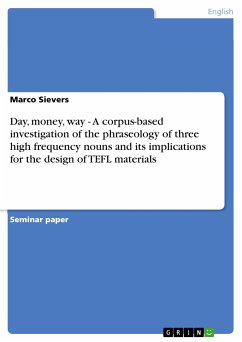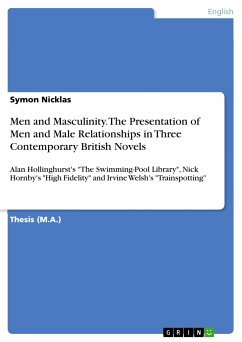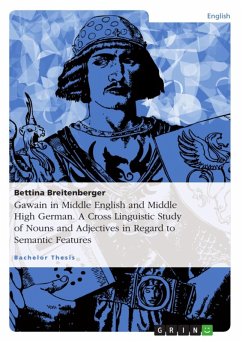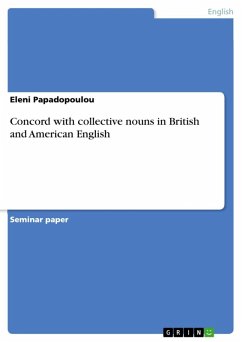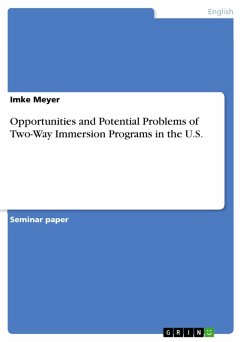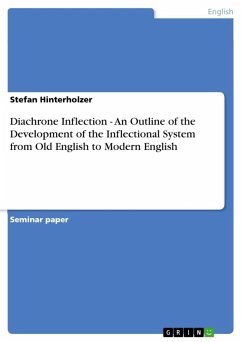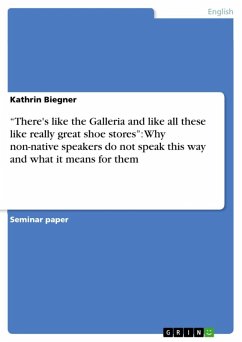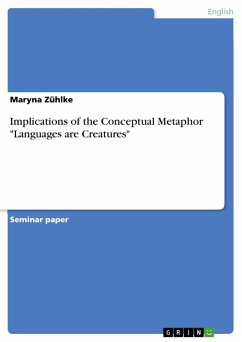Seminar paper from the year 2006 in the subject English Language and Literature Studies - Linguistics, grade: 1,3, University of Hannover (Englisches Seminar), course: Hauptseminar Corpora and Language Teaching, language: English, abstract: The use of corpora has expanded linguistic research possibilities, revolutionized theoretical concepts of language by applying empirical methods, and changed the face of applied linguistics. Although corpora are a tremendous asset to lexicography, translation studies, cultural studies and even to forensics, an awareness of their benefits has not fully arrived in the field of language teaching, yet. While insights from corpora linguistics have led to the development of a new and improved generation of dictionaries, most teaching materials for teaching English as a foreign language (TEFL) have been largely unaffected in this respect, and are regrettably still based on old conventions and on the intuition of course book designers. This unfortunate fact is the starting point for the term paper at hand, which investi-gates the high frequency nouns day, money and way in two corpora in order to compare their authentic use by native speakers to their illustration in German teaching materials. Its focus is set on phraseology and frequency to find out if these nouns are adequately represented, or if an amendment of teaching materials is necessary. The spoken part of the British National Corpus (BNC spoken) serves as the basis of this analysis, due to the fact that German language teaching policy favours a communicative approach aiming at the development of communicative competence and fluency in spoken English. The BNC findings are juxtaposed to the results of an analysis of the German English as a Foreign Language Textbook Corpus (GEFL TC), a corpus comprising two school book series. Additionally, the nouns¿ introduction and presentation in the German English G 2000 textbook series are explored. Finally, as one approach to investigate the teaching materials for advanced learners, the respective entries are checked in three dictionaries aiming at this target group, namely the Longman Dictionary of Contemporary English, the Macmillan Dictionary for Advanced Learners and the Oxford Advanced Learners¿ Dictionary of Current English. The paper will first provide the theoretical background for the analysis, and will explain its concept and methods. Subsequently, it will focus on the analysis¿ results and will propose improvements to textbook design. Last but not least, it presents Data Driven Learning (DDL) as corpus-based complement of course books and devises six exercises, based on the corpora findings of the BNC spoken, to exemplify it.
Dieser Download kann aus rechtlichen Gründen nur mit Rechnungsadresse in A, B, BG, CY, CZ, D, DK, EW, E, FIN, F, GR, HR, H, IRL, I, LT, L, LR, M, NL, PL, P, R, S, SLO, SK ausgeliefert werden.

